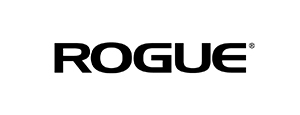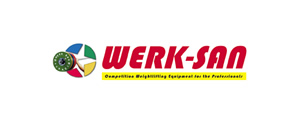Independent Clean Sport Commission notes IWF progress in implementing anti-doping recommendations
Lausanne, 19 April 2018: The independent IWF Clean Sport Commission has found that the vast majority of its recommendations have already been implemented by the IWF, demonstrating the federation’s complete commitment to clean sport.
The Clean Sport Commission, which was established in 2017 to reform the IWF ’s anti-doping practices, met from 16-17 April to evaluate the progress the IWF has made.
“The IWF has worked very hard to protect our clean lifters and it is a great encouragement to see the Clean Sport Commission is more than satisfied by the way we have been implementing its recommendations,” said IWF President Tamas Ajan. “Implementing the Clean Sport Commission recommendations so quickly and so thoroughly has required a great commitment. Not only by our own teams but also by our member federations, WADA, national anti-doping organisations (NADOs) and other partners, from laboratories. On behalf of clean lifters throughout the world, and on behalf of the IWF, I would like to offer my sincere gratitude for all their hard work.”
During the Clean Sport Commission’s meeting, WADA’s Gabriel Zangenfeind representing Benjamin Cohen, Director, European Office and International Federation Relations noted that the IWF was one of the first International Sports Federations to satisfactorily complete WADA’s Compliance Monitoring Programme.
Nicolas Zbinden, the IWF’s outside counsel from Kellerhals-Carrard, welcomed the application of improvements to the IWF’s anti-doping policy, which came into effect on 15 April.
Dr Hans Geyer, Deputy Director of the Cologne Anti-Doping Laboratory reported on several new cutting-edge analytical methods which the Cologne and Montreal Laboratories are now using to analyse IWF samples. The unique arrangement between the IWF and these two laboratories includes the deployment of a new test for gene doping, a new test to detect myostatin inhibitors and a new analytical method, which produces a digital matrix of each sample. In the case of abuse of new prohibited substances being discovered, this digital matrix can be used to identify stored samples for retesting and to identify particular athletes for future target testing. As recommended by the Commission, IWF has also increased the number of samples stored over the long term for future analysis.
Billy Gannon of the Canadian Centre for Ethics in Sport (CCES) reported that, as recommended by the Commission, IWF has entered into a contract with CCES to direct IWF’s out-of-competition testing programme going forward. The number of out-of-competition tests, targeting high-risk countries in particular, has already been substantially increased.
“There are some countries that have proven to have a high historical prevalence of doping, regardless of the sport. As a committed member of the Olympic Movement, the IWF is proud to be working in partnership with WADA and the anti-doping community, to lead the way in delivering cultural change in those countries for the benefit of all sport. We have made great progress in a short period of time. However, like all sports, there is always more that can be done and we will continue to implement anti-doping measures to protect clean athletes,” added IWF President Ajan.
The IWF has been working with WADA and NADOs to ensure high-risk countries benefit from mentorship. Partnership with WADA and NADOs has also proved vital to ensuring access to high-risk countries for doping control officers and expedient shipment of samples for testing.
Of the nine countries suspended by the IWF for doping violations related to the retesting of samples from the Beijing 2008 and London 2012 Olympic Games, eight have formally agreed to a broad set of conditions for a return to eligibility. Russia is the only country which was not able to fulfil all the conditions; however, they are putting in place a series of measures to bring about widespread cultural change in the country. Russia is taking the lead in hosting an educational seminar in Moscow this May, which the IWF and WADA are contributing to, and will be attended by representatives of all nine suspended member federations.
Further examples of implementation notably include the IWF’s Tokyo 2020 Qualification System, which was announced last week. At the request of the IOC, and with its approval, this system provides the greatest possible opportunities to those countries with the strongest records of clean sport during the three Olympic cycles preceding each edition of the Games.














